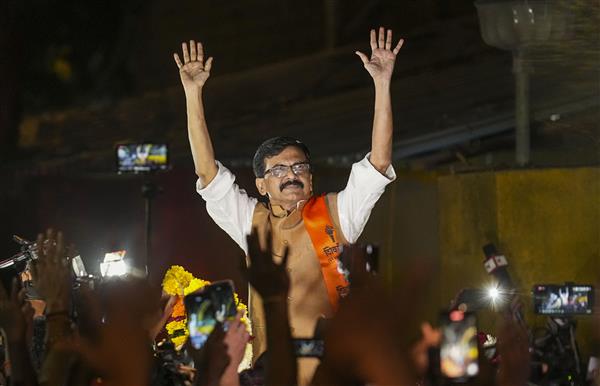Mumbai, November 7
The arrest of Shiv Sena MP Sanjay Raut in a money laundering case by the Enforcement Directorate (ED) was “illegal” and a “witch-hunt”, a special court here said on Wednesday while granting him bail in the Patra Chawl redevelopment matter.
It also questioned why the main accused in the case, Rakesh and Sarang Wadhawan of real estate firm HDIL, were never arrested by the ED.
Further, the reason the agency did not arrest concerned officials of MHADA and other government departments was “nothing, but conveying a message to then Union agriculture minister and then (Maharashtra) chief minister, creating a fear psyche in their mind that they are the next in this queue,” the judge said.
It was an “astonishing admitted fact that main accused Rakesh and Sarang Wadhawan of HDIL, who had not only generated over Rs 1,000 crore, but also allegedly placed, layered and integrated the same, were never arrested by the ED,” it said.
The special judge for cases under the Prevention of Money Laundering Act, M G Deshpande, granted bail to Sanjay Raut, arrested on August 1, and his aide Praveen Raut, arrested in February 2022.
The Wadhawans were arrested and could not secure bail to date in many other cases filed by the ED.
“However, in the instant case considering the major role attributed to them which they have also admitted, yet ED has not arrested and allowed them to be scot free, for the reason best known to them(probe agency),” the judge said.
The ED arrested Pravin Raut purely for a “civil dispute” and Sanjay Raut for “no reasons”, it said.
“Basically, there was no reason nor any occasion to arrest both of them under section 19 of the PMLA for the allegations which are basically nothing but a civil dispute,” the court said.
Section 19 of PMLA grants power to arrest any person to the concerned government officials.
Discussions
Discussions
